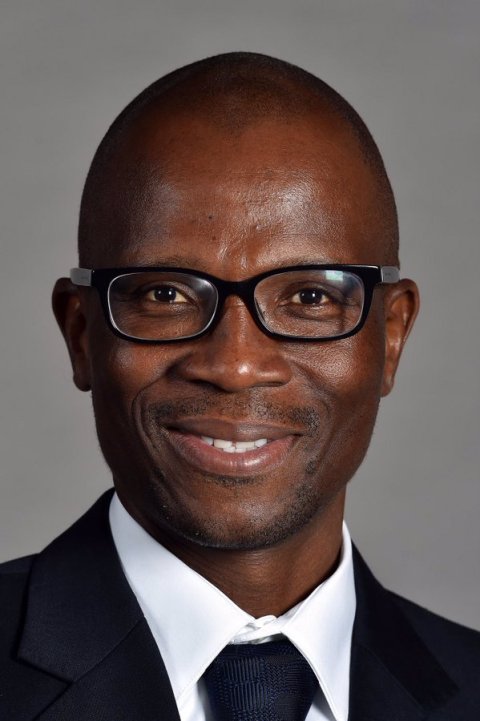G20 Pledges Debt Relief and Climate Finance Support for Developing Economies
“This is a clear signal that the international community is committed to improving debt sustainability and restoring macroeconomic stability in debt-distressed countries,” said Dr Masondo.

- Country:
- South Africa
At the third G20 Finance Ministers and Central Bank Governors (FMCBG) Meeting, held in Durban, South Africa, on 17–18 July 2025, global financial leaders committed to stronger action to support low- and middle-income countries grappling with mounting debt burdens, limited fiscal space, and escalating borrowing costs.
Deputy Finance Minister Dr David Masondo, who briefed the media following the high-level meeting, emphasized that the G20 countries had reaffirmed their resolve to implement more robust debt restructuring mechanisms while accelerating inclusive and sustainable financial development, especially in Emerging Market and Developing Economies (EMDEs).
Debt Relief Through the Common Framework
Central to the meeting's agenda was the G20’s commitment to the Common Framework for Debt Treatments, a mechanism jointly developed with the Paris Club to provide coordinated and timely debt restructuring to eligible countries. Dr Masondo highlighted that G20 members had officially endorsed two critical policy documents:
-
The G20 Note on Lessons Learned from the Initial Common Framework Cases, and
-
The G20 Note on Steps of a Debt Restructuring under the Common Framework.
These notes aim to streamline and strengthen the implementation of the Common Framework by addressing procedural delays and enhancing creditor coordination. To boost transparency, case-specific fact sheets for Chad, Zambia, and Ghana—the first three countries to engage with the Framework—have been made available on the G20 and Paris Club websites.
“This is a clear signal that the international community is committed to improving debt sustainability and restoring macroeconomic stability in debt-distressed countries,” said Dr Masondo.
Special Drawing Rights: Channeling Support to Countries in Need
Another significant milestone discussed was the progress made in the voluntary channelling of Special Drawing Rights (SDRs). The G20 surpassed the goal of reallocating $100 billion in SDRs, reaching a total of $113.8 billion pledged by 35 countries. These funds are being redirected to countries in need via mechanisms such as the IMF’s Resilience and Sustainability Trust (RST) and Poverty Reduction and Growth Trust (PRGT).
Dr Masondo emphasized that SDR channelling not only improves liquidity for low-income countries but also serves as cushioning support during global shocks.
Elevating Developing Country Voices in Global Finance
The meeting also touched on the institutional imbalance in the global financial system. Ministers and central bank governors agreed on the need to enhance the representation and voice of developing nations within Multilateral Development Banks (MDBs) and international financial institutions such as the IMF and World Bank.
“Inclusive representation is essential for fostering a truly cooperative and responsive global financial order,” Dr Masondo stated.
Stable Capital Flows and Role of Non-Bank Financial Institutions
Despite global economic volatility, G20 leaders noted the relative resilience of capital flows to EMDEs, crediting sound macroeconomic policies and robust frameworks. However, the group acknowledged the growing influence of non-bank financial institutions (NBFIs), such as hedge funds and asset managers, on these flows.
They agreed that deeper analytical work is needed to understand the risk channels and systemic impact posed by these institutions, particularly in developing markets where regulatory environments may still be evolving.
Financing the Green Transition: Scaling Up Climate Adaptation Support
In line with the G20’s sustainable development priorities, ministers and governors tackled climate finance, especially for adaptation and just energy transitions in vulnerable economies.
Key proposals emerging from knowledge partners and discussions included:
-
Integrating adaptation measures into voluntary transition plans,
-
Expanding financing instruments for climate-resilient infrastructure,
-
Strengthening data and transparency in carbon markets, and
-
Addressing insurance protection gaps through innovative risk-sharing mechanisms.
The G20 also reviewed progress by the Climate Data Steering Committee, which is developing a Common Carbon Credit Data Model. The aim is to enhance interoperability across carbon markets, improve transparency, and increase confidence in climate-related investment flows. The draft model is currently open to public consultation with input being welcomed from both public and private stakeholders.
South Africa’s Role in Shaping G20 Priorities
South Africa, as host of the 2025 G20 Summit, is playing a pivotal role in shaping the agenda. The National Treasury and the South African Reserve Bank co-chair the G20 Finance Track, led by Finance Minister Enoch Godongwana and SARB Governor Lesetja Kganyago.
Dr Masondo reiterated the country’s commitment to ensuring that the voices of Africa and the Global South are amplified within global economic governance platforms.
“The economic pressures faced by many African and developing nations underscore the need for bolder and more cooperative international leadership,” he said.
Conclusion: A Collective Push for Reform and Resilience
The Durban FMCBG meeting reflected a global consensus on the urgent need for coordinated international action to ease fiscal pressures in developing economies, advance climate finance, and reform global institutions to reflect new geopolitical and economic realities.
With renewed pledges, expanded debt relief tools, and a focus on just transitions, the G20 continues to position itself as a critical platform for promoting equity, resilience, and inclusive development in a turbulent global landscape.
Full communique and resources:
- READ MORE ON:
- G20 2025
- David Masondo
- global debt
- Common Framework
- SDR reallocation
- capital flows
- EMDEs
- MDB reform
- climate adaptation
- carbon credit data model
- non-bank financial institutions
- Durban summit
- Enoch Godongwana
- Lesetja Kganyago
- just transitions
- developing economies
- G20 finance track
- Africa debt relief
- G20 Durban communique










